- Your cart is empty
- Continue Shopping
BZYET-143 INSECT VECTORS AND VECTOR BORNE DISEASES in English Solved Assignment 2022-2023
₹40.00Current price is: ₹40.00. Original price was: ₹50.00.
BZYET-143 INSECT VECTORS AND VECTOR BORNE DISEASES in English Solved Assignment 2022-2023
ASSIGNMENT
INSECT VECTORS AND VECTOR BORNE DISEASES
Course Code: BZYET-143
Assignment Code: BZYET-143/TMA/2023
Maximum Marks: 100
BZYET-143 INSECT VECTORS AND VECTOR BORNE DISEASES in English Solved Assignment 2022-2023
ASSIGNMENT
INSECT VECTORS AND VECTOR BORNE DISEASES
Course Code: BZYET-143
Assignment Code: BZYET-143/TMA/2023
Maximum Marks: 100
| Title Name | BZYET-143 Solved Assignment 2022-2023 |
| University | IGNOU |
| Service Type | Solved Assignment (Soft copy/PDF) |
| Course | BSCG |
| Language | ENGLISH |
| Semester | 2022-2023 Course: B.SC(G) CBCS |
| Session | Valid from 1st January, 2023 to 31st December, 2023 |
| Short Name | BZYET-143 |
| Assignment Code | BZYET-143/TMA/2023 |
| Product | Assignment of BSCG 2022-2023 (IGNOU) |
| Submission Date | Valid from 1st January, 2023 to 31st December, 2023 |
| Price | RS. 50 |
Note: Attempt all questions. The marks for each question are indicated against it.
Part-A Maximum Marks: 50
1. Which structural, developmental and behavioristic characteristics make insects
highly successful organisms on Earth?
(10)
2. Write short notes on following:
i) Mouthpart modifications in insects
ii) Types of antennae in insects
iii) Typical structure of insect wing
iv) Leg modifications in insects
(10)
3. i) Read the following sentences and tick mark the correct alternative.
a) Incubating/Convalescent carriers are infected and can spread the
pathogen, but do not show the symptoms of illness.
b) The only function of mechanical/biological vectors is to transport
the infectious agents which don’t really need vectors to complete
their life cycle.
c) In propagative/cyclopropagative transmission the pathogen
undergoes a developmental cycle and multiplication in the body of
arthropod.
d) Some virus and rickettsiae are transmitted from male/female
parent through the sperms/eggs to the offspring.
ii) Differentiate between:
a) Propagative Transmission and Cyclopropagative Transmission
b) Cyclodevelopmental Transmission and Vertical Transmission
(4)
(6)
4. i) Name four insect orders which are of medical importance. Write at least
one conspicuous feature and three examples of each order.
ii) Give reasons for the following features found in insects.
a) Fleas have a laterally compressed body.
b) Forewings of a few hemipterans are called hemelytra.
c) Hind legs of fleas are saltatorial types with large coxae.
d) Saliva of haematophagous insects contain anticoagulant.
e) Heteroptera have a characteristic scutellum which is absent in
homopterans.
f) The under surface of the housefly labella has prestomial teeth.
(4)
(6)
4
5. i) Explain the role of Reduviid bug as a biological vector in the
transmission of Chagas disease.
ii) What preventive measures will you take for controlling the bed bugs
from entering your house?
(5)
(5)
Part-B Maximum Marks: 50
6. i) Read the following sentences and write True (T) or False (F).
a) Malaria is a disease caused by Anopheles mosquito.
b) The vector for malaria is Culex species.
c) The infection of malaria starts when a female mosquito injects
sporozoites of Plasmodium sp. present in her saliva into a human
skin.
d) Plasmodium cannot complete its life cycle at temperature below
20C.
e) During pregnancy malaria can lead to premature baby delivery.
f) Most malarial deaths occur in urban areas.
ii) Discuss the preventive and control measures of Anopheles mosquito.
(6)
(4)
7. i) Write a short note on dengue prevention and control.
ii) Draw a labeled diagram of:
a) Life cycle of Aedes mosquito.
b) Dengue transmission Cycle.
c) Zika Transmission Cycle.
(4)
(6)
8. Write short notes on:
a) Traps used for controlling houseflies
b) Cultural control of Musca
c) Chemical control of housefly
d) Myiasis
(10)
9. i) Write the ecological factors favourable for the transmission of Kalaazar.
ii) Illustrate the transmission of visceral leishmaniasis in human beings.
(4)
(6)
10. i) Explain the concept of Integrated Vector Management.
ii) Why have insects vectors developed resistance to insecticides?
BZYCT-143, BZYCT 143, BZYCT143



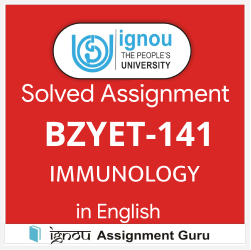

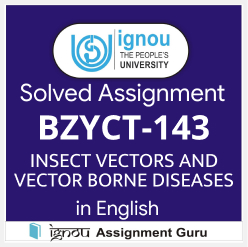
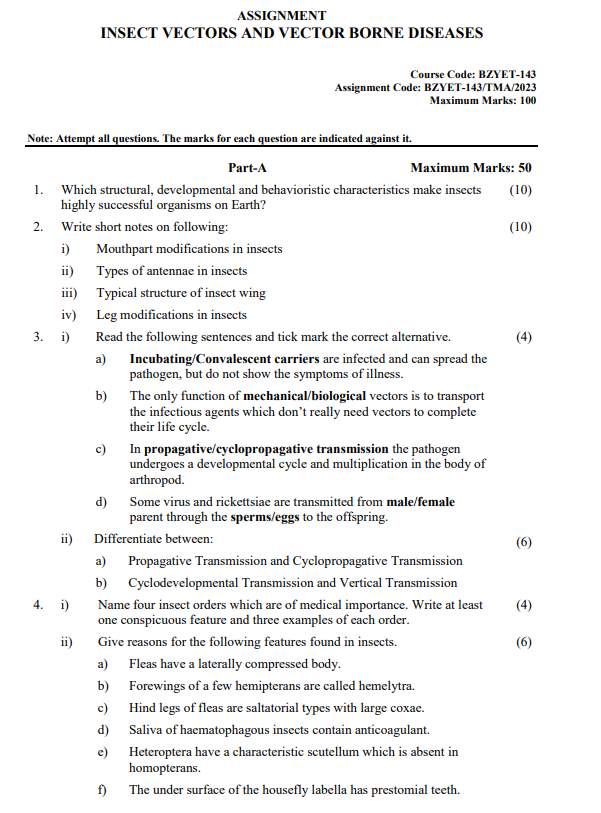
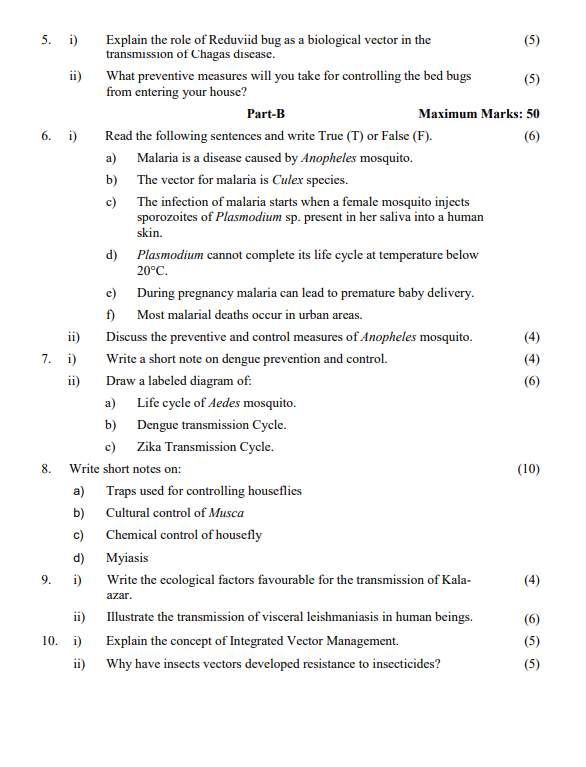


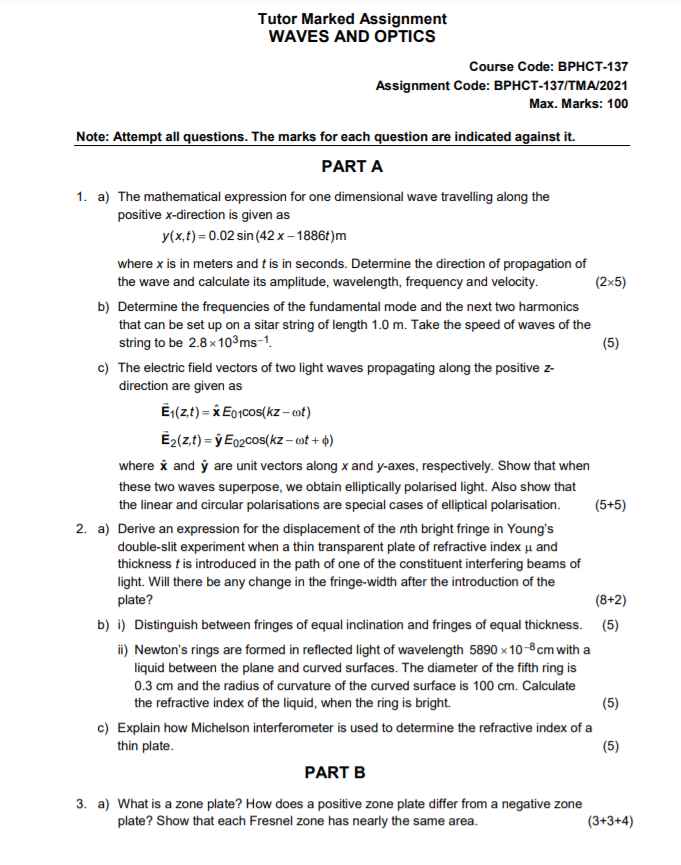



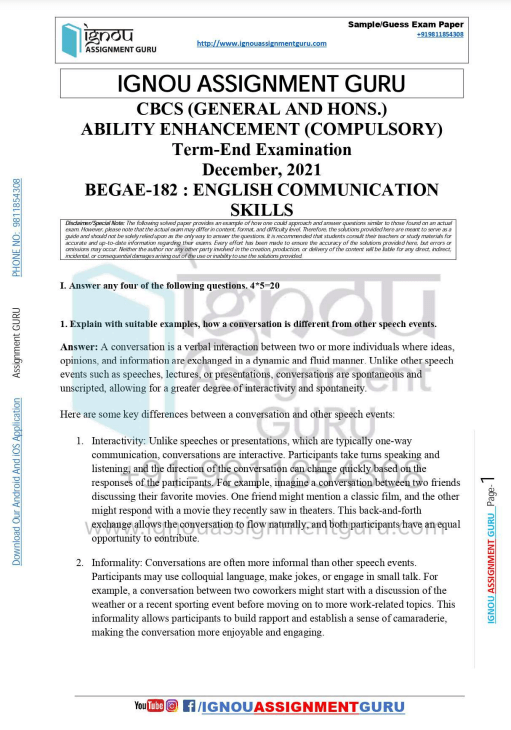

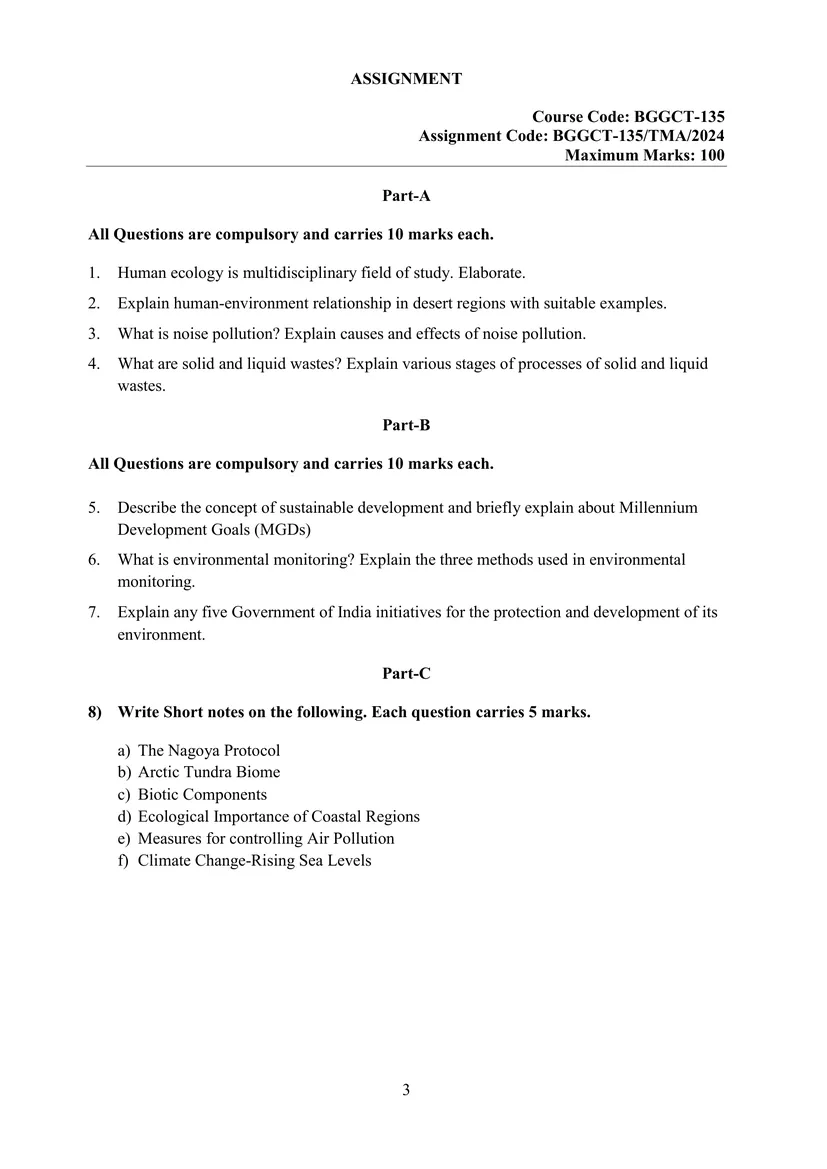
Reviews
There are no reviews yet.